What Do Raspberries Taste Like? Sweet Bursts of Summer Joy
Raspberries burst with a vibrant complexity that tantalizes taste buds and sparks culinary curiosity.
Delicate ruby-red gems hide more than meets the eye, promising a sensory adventure beyond simple fruit consumption.
Passionate food lovers often wonder about the nuanced flavor profile of these petite berries.
Their unique characteristics make raspberries a fascinating subject for anyone interested in understanding fruit flavors deeply.
Subtle notes and intricate layers create an unexpected gustatory experience that goes far beyond basic sweetness.
Culinary enthusiasts and casual snackers alike find themselves intrigued by the potential taste dimensions of these remarkable berries.
Your next culinary exploration starts with unraveling the delicious mystery of raspberry flavor.
Let's dive into the delectable world of these remarkable fruits and uncover their true taste sensation.
What Are Raspberries?
Raspberry plants belong to the Rubus group and grow in bramble patches.
People find these berries special in places like northern Europe, United States, and Canada, with roots tracing back to eastern Asia.
Packed with iron, vitamin C, and healthy compounds, raspberries make a delicious dessert when served with cream or ice cream.
Cooks love using them in jams, jellies, pastry fillings, and even fancy liqueur drinks.
Raspberry bushes keep coming back year after year, growing on special stems called canes.
Some canes have tiny prickles while others stay smooth.
Most of these plant stems need two full years before they start producing fruit.
Flavor of Raspberries
Raspberries come with a special mix of sweet and tangy taste that makes them unique.
Unlike blackberries, they aren't super sour.
Small hints of tartness might pop up, especially when berries are picked before reaching full ripeness.
Ripe raspberries have stronger and sweeter flavors that make them so enjoyable.
Raspberries pack a serious health punch with lots of good stuff inside.
Loaded with special color pigments and helpful nutrients, these little red berries work like magic for your body.
Keeping some raspberries in your kitchen means quick and tasty snacking options.
Seeds included berries make a perfect healthy treat that helps keep hunger away.
People who like different textures can enjoy raspberries in raw or dried form without missing out on their wonderful benefits.
Flavor Differences Among Raspberry Varieties
Raspberry varieties each have their own special taste, so picking the right type can really change your eating or cooking experience:
Each kind has its own balance of sweetness and tartness, so you might find one that you enjoy most for eating fresh or using in recipes.
Health Benefits of Raspberries
Raspberries are a delicious way to support your health.
Here’s why these berries deserve a regular spot in your diet.
Good For People With Diabetes
Raspberries shine as a low-sugar berry choice.
Sweet lovers can enjoy these red gems without worrying about sugar overload.
Their low glycemic index supports steady blood sugar levels.
Packed with fiber, raspberries slow down digestion and help maintain balanced blood sugar.
Each bite offers a delightful way to manage sugar intake while savoring a naturally sweet treat.
Packed With Antioxidants
Raspberries pack powerful health protection through their rich antioxidant content.
Compounds like beta carotene, lutein, lycopene, and zeaxanthin work inside our bodies.
Research shows these antioxidants help lower inflammation and slow down aging processes.
Harmful free radicals can damage our cells over time.
Antioxidants work as helpful defenders that remove these dangerous molecules, bringing multiple wellness advantages to our overall health.
Full Of Fiber
Red raspberries pack a powerful punch with 8 grams of dietary fiber in each cup.
Such fiber helps control hunger and stops overeating.
It works by slowing down digestion and keeping blood sugar levels steady.
This process supports overall digestive wellness.
Raspberries boost good bacteria growth in your digestive system.
These helpful microorganisms support immune function and improve how your body processes nutrients.
Scientific studies show these bacteria can lower chances of developing certain health problems.
Great For Heart Health
Red raspberries pack powerful health benefits for heart wellness.
Specific compounds inside these berries can help reduce body inflammation that might cause heart issues.
Research shows these special plant substances calm down strong immune system reactions.
Vitamin C and other protective chemicals shield heart cells from harmful molecule damage.
Berries also include potassium, which balances sodium amounts in your system.
Balanced sodium levels support smooth blood flow and help keep blood pressure steady.
Consuming these small red fruits could lower risks connected with high blood pressure problems.
Controls Cholesterol
Raspberries pack a powerful health punch with their high vitamin C and fiber content.
Such nutrients work hard to combat bad cholesterol in our bodies.
Research shows these berries can help prevent serious heart problems.
Hardened arteries occur when plaque builds up, but fiber steps in to protect blood vessels.
By lowering cholesterol levels, raspberries support heart health.
Manganese found in these small red berries also plays a key role in managing cholesterol.
This mineral helps reduce LDL levels, which further supports heart wellness and decreases risks of cardiovascular issues.
Helps With Allergies
Red raspberries pack a powerful health punch with quercetin, a special compound that fights allergic reactions.
Researchers have found this flavonoid works to block histamine release in the body.
Histamine is a substance created by our immune system that triggers inflammation.
Quercetin helps calm down allergic symptoms like runny noses, itchy hives, watery eyes, and other swelling problems caused by allergic responses.
Good For Pregnancy
Red raspberries pack a powerful nutritional punch for expectant mothers.
These small berries contain key nutrients that support maternal and fetal health.
Vitamin C within red raspberries helps shield the developing baby from harmful free radical damage.
Folate stands out as another critical component in these berries.
Medical research highlights folates importance for brain growth during pregnancy.
This nutrient might also reduce risks of certain birth defects.
Zinc, potassium, and iron round out the impressive nutritional profile of red raspberries.
Women experiencing pregnancy can benefit from adding these berries to their diet.
Each tiny fruit carries a significant blend of minerals and vitamins.
Mothers-to-be seeking natural ways to support their health could find red raspberries an excellent choice.
Scientific evidence continues to underscore the positive impact of these small yet mighty fruits during pregnancy.
Lowers Eye Disease Risk
Red raspberries pack powerful health benefits for your eyes.
These tiny fruits contain rich amounts of protective substances that shield body cells from harm.
Dangerous molecules can damage important eye parts over time.
Specific compounds in raspberries work hard to block problems like macular degeneration, cataracts, and glaucoma.
Vitamin A plays a key role in supporting clear eyesight.
Special cells in eyes called cone cells stay stronger with this important nutrient.
Healthy cone cells mean sharper vision that stays strong as you age.
Raspberries help defend against common sight issues that can develop later in life.
May Help Prevent Cancer
Red raspberries pack a powerful health punch that helps fight cancer risks.
These small red berries come loaded with important nutrients like vitamin A, C, and flavonoids.
Harmful free radicals can damage healthy cells and boost cancer chances, but these compounds work hard to shield cells from potential harm.
Scientific studies show red raspberries hold ellagic acid, a special plant compound that acts as a strong cancer-fighting antioxidant.
Researchers have discovered this natural substance provides significant protection against dangerous cell changes.
Herbs That Go With Raspberries
Raspberries work well with herbs since they can match different flavor profiles. Mint stands out as a top choice for pairing with raspberries because its gentle taste complements the berry's delicate nature without stealing the spotlight.
This combo helps people create special desserts that delight the senses.
People wanting to add warmth to raspberry dishes can swap mint for spices that bring more depth.
Spices can help boost raspberry flavor in interesting ways. These spices enhance the berry's taste:
How to Grow Raspberries
People often plant raspberries using dormant canes during winter months.
Soft and plug plants have gained popularity recently, with scientists using tissue culture techniques to create them.
Growers in cold regions like Scotland and Washington use long cane production to grow canes for a year.
Workers then soak and root these canes in warm water.
Quick flower production happens as a result of this method.
Raised beds are crucial for raspberry plants to prevent root rot problems.
All raspberry types have perennial roots, but not all have perennial shoots.
Raspberry shoots emerge every two years, and raspberry flowers serve as an important nectar source for honey bees and other pollinators.
Blackberry vs. Raspberry Differences
Here are the differences between two brambles:
Eating Rotten Raspberries: What Happens?
When checking raspberries, watch out for bad ones.
Rotten berries might signal something wrong.
Black spots on raspberries could mean bacteria or fungus are present.
People with raspberry allergies should talk to medical experts about safe eating options.
Small red fruits pack lots of good health benefits and can be enjoyed during different seasons!
Ways to Use Raspberries
Raspberries bring exciting flavors to many dishes.
Some people enjoy eating these berries straight from their hand, while others like mixing them into different recipes.
Drying raspberries creates interesting flavor combinations.
Countless dessert recipes welcome these small red fruits.
People who don't enjoy raspberries can easily blend them into smoothies for a quick taste.
You can enjoy raspberries in multiple ways within their diet.
Snacking on fresh berries provides a nice refreshment.
Cooking methods help change their natural taste.
Bakers love adding raspberries to sweet treats.
Drink makers also incorporate these berries into tasty beverages.
Raspberry flavors range from tart to sweet depending on preparation.
Cooking helps shift their natural taste profile.
Bakers can create delicious pies with these berries.
Individuals who enjoy tangy foods will appreciate raspberry recipes.
Mixing them into different dishes allows people to experiment with unique flavor combinations.

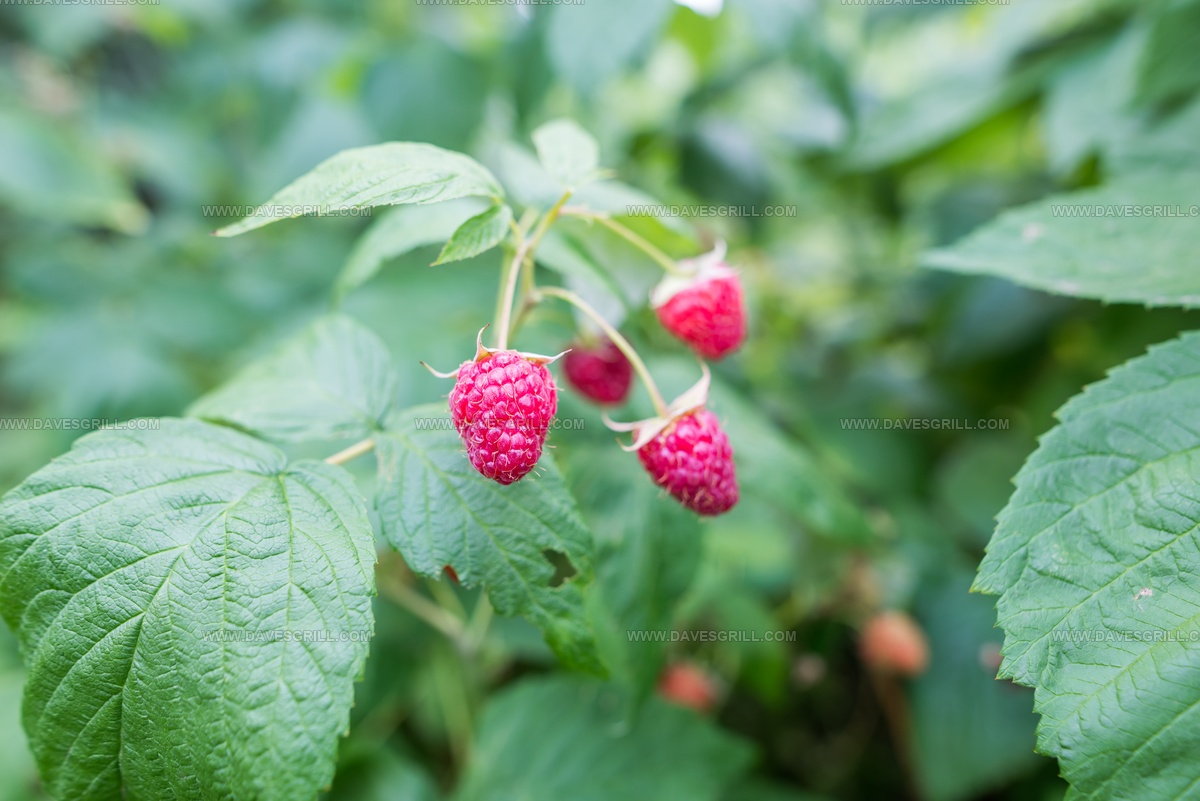
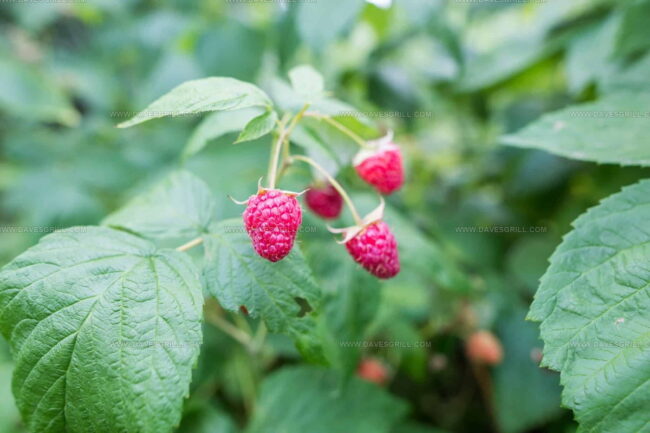

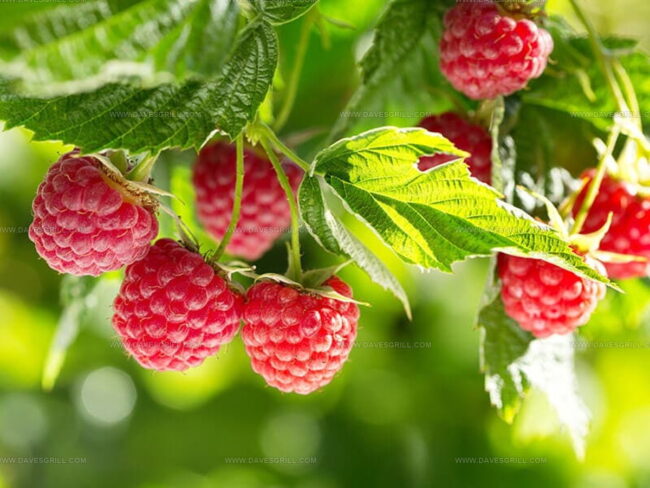
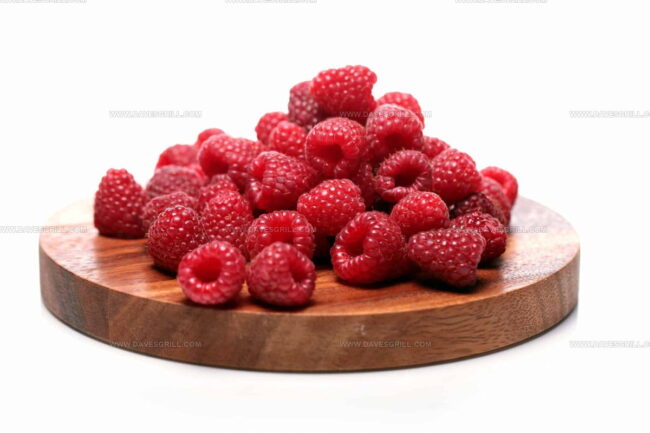
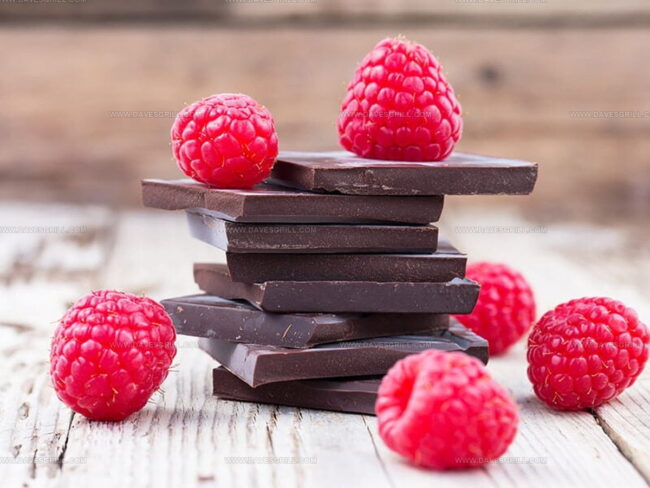
Emily Lawson
Content Creator & Culinary Specialist
Expertise
Education
Oregon Culinary Institute
Diploma in Culinary Arts
Focus: Emphasis on farm-to-table cooking, sustainable practices, and the fusion of global flavors with traditional grilling methods.
Emily Lawson is the content creator at Daves Grill, turning tasty ideas into clear, easy recipes. Based in Portland, she trained at the Oregon Culinary Institute and loves cooking with fresh, seasonal ingredients, especially grilled veggies and global flavors.
Emily mixes food writing with hands-on cooking to bring you recipes that feel fun, not stressful. Her goal is to make every dish simple, flavorful, and worth coming back to. Together, she and Dave serve up real food, one recipe at a time.